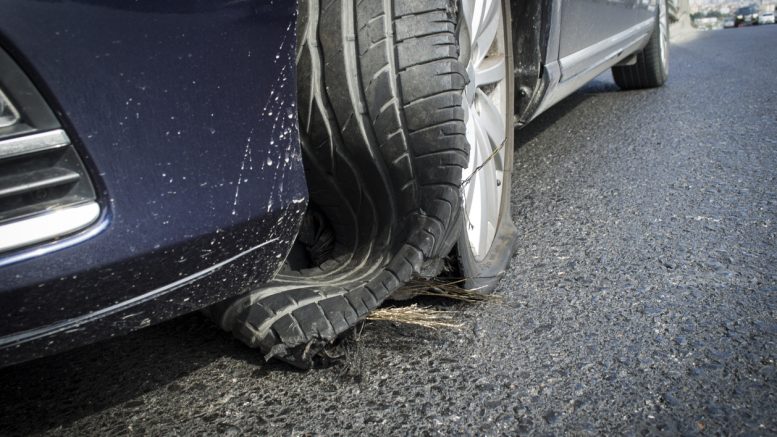There are many reasons why a tire might blow out while driving. Here are the ten most common reasons:
1) Under-inflation
One of the most common reasons for tires to blow out is due to under-inflation. When a tire isn’t inflated properly, it can cause the metal belts that make up the tire’s casing to overheat and eventually break. This will cause the tire to deflate quickly and can lead to a dangerous situation on the road. This is why it’s important to check your tire pressure at least once a month and to adjust it accordingly.
2) Road hazards
Another common reason for a tire to blow out is due to road hazards. This can include things like potholes, sharp objects, or debris in the road. If you drive over a large pothole, for example, it can cause the metal belts in the tire to break. This will lead to an immediate loss of air pressure and can be very dangerous.
3) Excessive speed
Excessive speed is another common factor that leads to tires blowing out. When you drive too fast, it puts a lot of stress on the tires and increases the chances of them bursting. Driving at high speeds can also cause the tires to overheat, which can lead to a blowout.
4) Tire age
Tires don’t last forever and over time, they will start to wear down. As the rubber starts to wear away, it becomes more susceptible to punctures and tears. This is why it’s important to regularly check your tire’s tread depth and to replace them when necessary.
5) Under-weighting/overloading
If you overload your vehicle or if you don’t have enough weight on your tires, it can put a lot of stress on them. This increases the chances of them blowing out and can be very dangerous. Make sure you know how much weight your tires can handle, and adjust your load accordingly.
6) Tire age/pressure match
This is another one of the most common reasons for a tire to blow out. If you have an underinflated or overinflated tire, it can cause undue stress on the metal belts that make up your tire’s casing. This will increase the chances of them deteriorating and eventually breaking, resulting in a blown-out tire or an unwarranted change in pressure. You should check your tread depth at least once a month to ensure no unusual changes in your air pressure.
7) Vehicle alignment issues
Vehicle alignment issues are caused when there are problems with things like camber toe-in, caster, or cross camber. This can wear down your tires faster, which will result in a premature blowout. Make sure you have your alignment checked regularly so this doesn’t happen to you.
8) Road conditions
Road conditions are another common factor that often leads to blown-out tires. This includes things like potholes, debris on the road, and even poor drainage systems. Driving over these kinds of obstacles can cause your tire’s metal belts to break and lead to a sudden loss in air pressure.
9) Valve stem issues
If the valve stem on your tire gets damaged or has a leaky seal, then it can cause an immediate loss of air pressure once it is insured by something sharp. This can lead to a blown-out tire. Make sure you check your valves regularly so this doesn’t happen to your tires.
10) Tire pressure monitoring system issues
If you own a vehicle with a tire pressure monitoring system, it is equipped with sensors that monitor the air pressure inside each tire. These systems also send alerts to the driver when there is an issue with any one of these tires and it can help prevent them from blowing out. This will save you time and money by alerting you proactively before anything bad happens. If your car has TPMS, make sure you periodically inspect all of the sensors for damage and make sure they are working correctly at all times.
Tires blow out as a result of many different causes including potholes, loose objects on the road, damage to the valves or sensors on a tire pressure monitoring system, excessive speed, and age/pressure mismatches. If you drive at high speeds or you drive with tires that are too old or under-inflated/over-inflated this increases your chances of a tire’s metal belts deteriorating prematurely, which can lead to disastrous consequences. When taking care of your tires, keeping track of their tread depth, their age, keeping them properly inflated, not driving with under-inflated or over-inflated tires, checking the valves on your tire pressure monitoring system for damage and making sure they are working correctly, and avoiding driving at high speeds or with objects that might put stress on your tires can help prevent these kinds of incidents.



Be the first to comment on "Why Tires Blow Out"